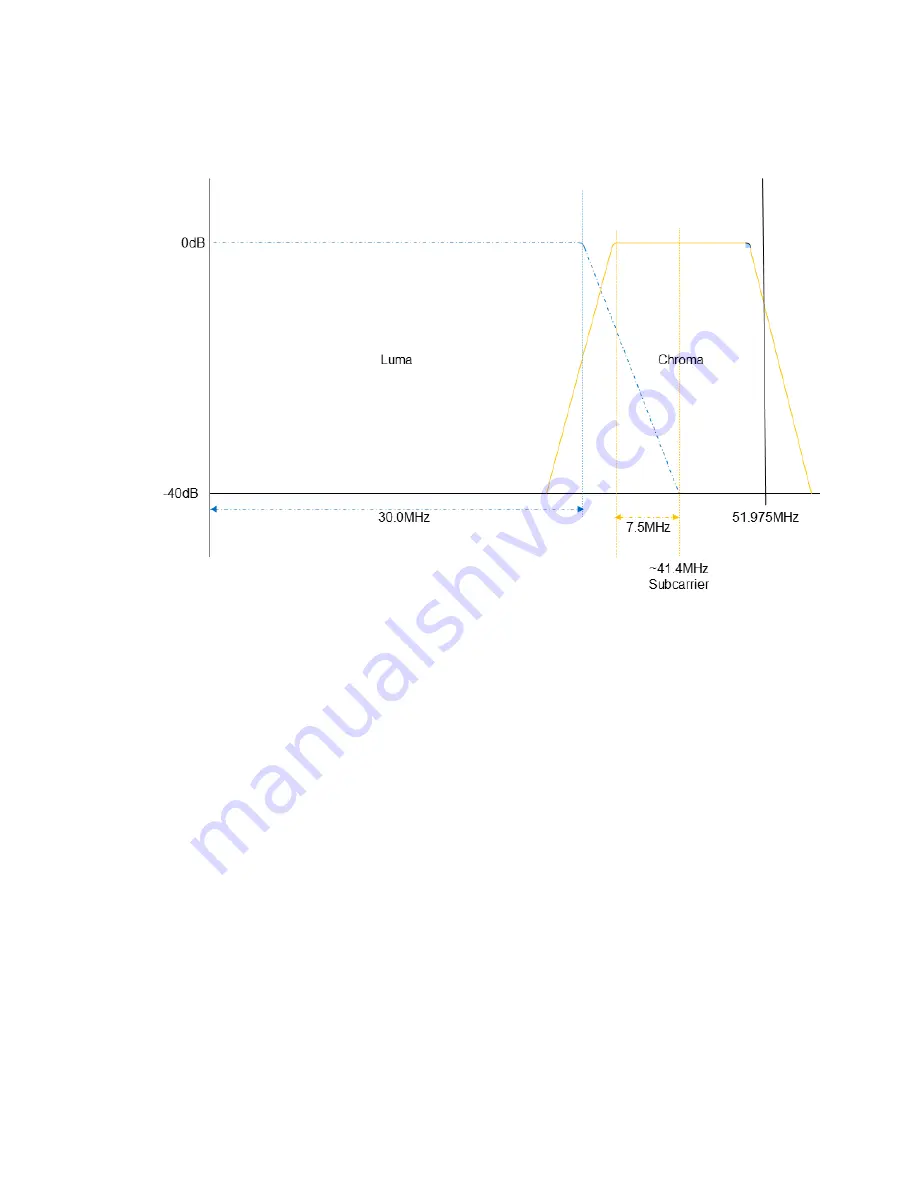
7
A further improvement in the SNR is achieved through transmitting a peak
to peak video level of 1.5V which maintains compatibility with any legacy
SD equipment on the network and also allows common low-power 5V
drivers to be used.
Figure 1 aCVi Spectrum.
ACVi also allows for the bidirectional transfer of data between receiver and
transmitter. One byte of data is transmitted in each direction per frame (i.e.
50bytes/second data rate for a 50Hz frame rate). The data rate is
deliberately kept low to reduce the effects of cable attenuation. Data is sent
using two dedicated lines in the vertical blanking interval.
Summary of Contents for SM02
Page 13: ...13 Menu control The complete menu structure is shown in Figure 4 Figure 5 SM02 Menu structure ...
Page 20: ...20 Figure 7 aCVi output 30MHz sweep Pre emphasis maximum Exit Returns to the top level menus ...
Page 23: ...23 Figure 10 SMPTE Colour Bar component waveform Figure 11 SMPTE Reverse colour bars waveform ...
Page 37: ...37 ...
Page 38: ...38 ...








































